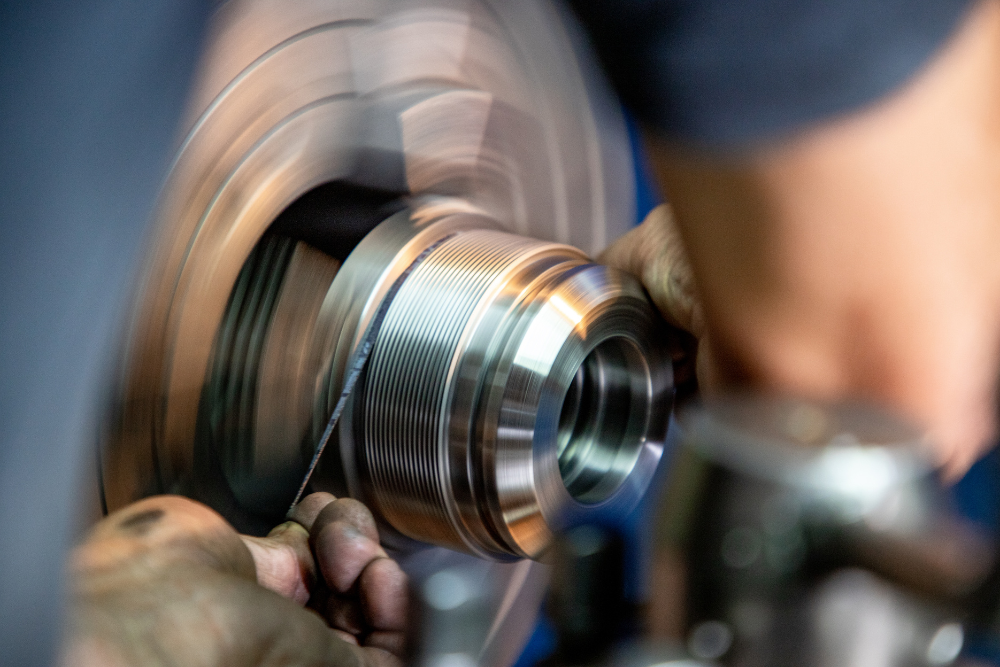In the ever-evolving healthcare industry, the demand for high-precision, custom-made medical components continues to grow. Precision medical CNC (Computer Numerical Control) machining plays a vital role in manufacturing complex, intricate parts with unparalleled accuracy. These components are critical for surgical instruments, implants, orthopedic devices, diagnostic equipment, and more. This guide explores everything you need to know about Precision medical CNC machining from its processes and materials to its benefits, applications, and industry standards.
What Is Precision Medical CNC Machining?
Precision medical CNC machining refers to the use of automated, computer-controlled machines to manufacture extremely accurate and detailed medical components. It allows for the creation of parts with tight tolerances (often ±0.001 inches or tighter), complex geometries, and smooth finishes that are required in the medical field.
These parts must not only meet functional requirements but also comply with stringent regulatory standards for biocompatibility, sterility, and reliability.
Key CNC Machining Processes in the Medical Industry
1. CNC Milling
CNC milling uses rotating cutting tools to remove material from a workpiece to create the desired shape. It’s commonly used for producing surgical guides, enclosures for medical electronics, and orthopedic implants.
2. CNC Turning
Turning is typically used to produce cylindrical components such as catheters, stents, and bone screws. It involves rotating the workpiece while a single-point cutting tool shapes it.
3. Swiss Machining
Swiss CNC machining is ideal for small, complex medical parts requiring high precision, such as surgical tools and miniature implants. It offers extremely tight tolerances and smooth finishes.
4. EDM (Electrical Discharge Machining)
EDM is used when extremely fine details or sharp internal corners are required, often seen in surgical instrument production.
Materials Used in Precision Medical CNC Machining
Medical applications demand materials that are not only durable and machinable but also biocompatible and corrosion-resistant.
Common Materials Include:
-
Titanium – Strong, lightweight, and biocompatible; often used for implants and prosthetics.
-
Stainless Steel (316L, 304) – Corrosion-resistant, durable; suitable for surgical tools and instruments.
-
PEEK (Polyether ether ketone) – High-performance plastic used in spinal implants and dental devices.
-
Aluminum – Lightweight and corrosion-resistant; used in non-implantable diagnostic and surgical equipment.
-
Cobalt-Chrome Alloys – Often used in joint replacements and dental prosthetics.
Advantages of Precision CNC Machining for Medical Parts
1. Unmatched Accuracy
CNC machining provides the tight tolerances and fine detailing required for components like bone plates, stents, and valve components.
2. Repeatability
Once a part is programmed, it can be reproduced consistently across thousands of units with minimal variance.
3. Complex Geometries
Multi-axis CNC machines can create intricate designs with internal cavities and sharp angles that are impossible to make manually.
4. Fast Turnaround
Rapid prototyping and efficient batch production make CNC machining ideal for both R&D and full-scale production.
5. Compatibility with Sterilization
Parts produced through CNC machining are suitable for sterilization and repeated use, a crucial factor in medical applications.
Common Applications in the Medical Sector
Precision CNC machining is used in a wide range of medical fields, including:
-
Orthopedics – Bone screws, spinal implants, joint replacements
-
Cardiology – Stents, pacemaker housings, catheter components
-
Dental – Crowns, bridges, and implant abutments
-
Surgical Instruments – Forceps, scalpels, retractors, endoscopic tools
-
Diagnostic Devices – Housings, fixtures, custom components for imaging equipment
Meeting Regulatory and Quality Standards
Precision is not the only requirement in medical CNC machining—compliance with regulatory and quality standards is equally critical. Key standards include:
-
ISO 13485 – Specifies requirements for a quality management system for medical devices.
-
FDA Regulations (21 CFR Part 820) – Compliance is mandatory for manufacturers selling medical devices in the U.S.
-
AS9100/ISO 9001 – Quality standards often followed in manufacturing environments.
Traceability, process validation, and material certification are often required to ensure that each component meets medical-grade quality.
Choosing the Right Precision Medical CNC Machining Partner
Selecting a capable machining partner is critical for success. Important factors to consider include:
-
Experience with Medical Components
-
Certification and Regulatory Compliance
-
Advanced Equipment (5-axis, Swiss, multi-axis)
-
Prototyping and Customization Capabilities
-
Strict Quality Control and Inspection
A reputable partner will also assist in design for manufacturability (DFM) and help optimize production for efficiency and cost-effectiveness.
Future Trends in Medical CNC Machining
The medical machining industry is advancing rapidly thanks to new technologies and materials. Key trends include:
-
Micro-Machining – Producing components at sub-millimeter scales for minimally invasive procedures.
-
Additive + Subtractive Hybrid Manufacturing – Combining CNC and 3D printing for faster and more efficient prototyping.
-
Automation & Smart Machining – Leveraging AI and IoT to increase productivity and traceability.
-
Sustainable Manufacturing – Using recyclable materials and minimizing waste in production.
Conclusion
Precision medical CNC machining is a cornerstone of modern healthcare manufacturing. From lifesaving implants to delicate surgical instruments, this technology ensures high-quality, reliable, and regulatory-compliant components. Its ability to produce intricate parts with micron-level precision is unmatched, making it a preferred choice across the medical device industry.
As technology evolves and the demand for customization increases, CNC machining will continue to shape the future of medical innovation. Whether you're designing a prototype for a new device or scaling up production for market release, partnering with an expert medical CNC machining service is key to achieving success in this critical and highly regulated field.



